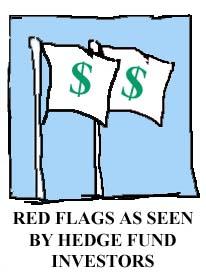A Reader Writes:
I enjoyed your recent item about favorite commercials. One of my absolute favorite spots of all time is the commercial directed by Joe Sedelmaier for Volkswagen in which the guy leaves his entire estate of "one hundred billion dollars" to his nephew, Harold, who drives a Beetle. I still remember a great line from the spot: "To my business partner Jules, whose only motto was, 'Spend, spend, spend,' I leave nothing, nothing, nothing."
Stuart Elliott replies:
Thanks, dear reader, for the memory. The commercial, called "Funeral," is also one of my faves. It was created by Doyle Dane Bernbach in New York, now part of the DDB Worldwide unit of the Omnicom Group. Doyle Dane also created other classic VW ads like "1949 Auto Show," my all-time best, and "Think small."
The "Funeral" commercial, from 1969, is included on lists of best commercials compiled by Advertising Age and TV Guide, among others. The commercial shows a procession of Cadillac limousines and
 other big cars headed to a funeral as a man speaks in a voiceover narration. The genius touch was that it soon becomes apparent that he is dead and reading his will aloud.
other big cars headed to a funeral as a man speaks in a voiceover narration. The genius touch was that it soon becomes apparent that he is dead and reading his will aloud."To my wife Rose who spent money like there was no tomorrow, I leave $100 and a calendar," the man intones. "To my sons Rodney and Victor, who spent every dime I ever gave them on fancy cars and fast women, I leave $50 in dimes."
Then, after the dig at Jules and "other friends and relatives who also never learned the value of a dollar'' - to whom he leaves a dollar - the man talks about Harold. Harold is shown wiping away a tear as he drives his VW Beetle at the end of the procession.
"Finally, to my nephew Harold," the man says, "who ofttimes said, 'A penny saved is a penny earned,' and who also ofttimes said, 'Gee, Uncle Max, it sure pays to own a Volkswagen,' I leave my entire fortune of one hundred billion dollars."
(The script for "Funeral" comes courtesy of the book "When Advertising Tried Harder" by Larry Dobrow (Friendly Press, 1984).








